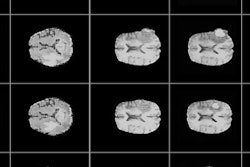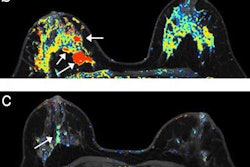Researchers from Case Western Reserve School of Medicine have received a $1.1 million grant from the U.S. National Institutes of Health (NIH) to study a method of performing MR angiography (MRA) exams for peripheral artery disease without gadolinium-based contrast media.
A research team led by Dr. Sanjay Rajagopalan will investigate the development of noncontrast-enhanced MRA methods for detecting peripheral artery disease, which affects some 200 million people worldwide. Current MRA methods are not widely available and have drawbacks such as the suppression of signals that can make blockages look worse than they really are, according to a statement from Case Western.
The technique that Rajagopalan and colleagues will investigate employs Fourier-based velocity-selective magnetization preparation, which magnetically tags flowing blood to generate paired images of the target tissue under "control" and "tagged" conditions. This enables blood vessels to be visualized without MRI contrast. The technique is also able to suppress background tissues without disturbing arterial blood, enabling better image contrast.
The researchers will compare the technique with contrast-enhanced MRI for detecting vessel narrowing and blockage, as well as determine intra- and interobserver agreement. They will also look into the feasibility of scan acceleration by using compressed sensing combined with parallel imaging in the calf.
The grant is from the NIH's National Heart, Lung, and Blood Institute.



















